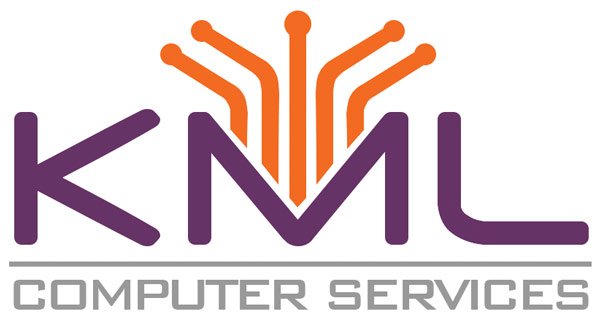
In the ever-evolving landscape of technology, small and medium-sized businesses (SMBs) face the challenge of managing their IT infrastructure effectively. Enter Managed Service Providers (MSPs), the unsung heroes ensuring seamless operations for businesses of all sizes. Partnering with the right MSP can open a realm of unparalleled advantages, offering strategic guidance and cutting-edge IT technologies. This guide delves into why your business could benefit from hiring an MSP and how to choose the right technology partner.
Why Your Business Needs a Managed Service Provider
Time Management and Productivity
In today’s lightning-paced business landscape, time is more than money; it’s survival. Consider this: 90% of businesses without access to their data for seven days risk closure within a year. Additionally, a data outage costs an average of $9,000 per minute. These statistics underscore the vital importance of implementing time management strategies in businesses. By entrusting an MSP to manage and maintain your IT infrastructure, you instantly reclaim a significant amount of time. Proactive services, such as 24/7 monitoring and expert IT staff dedicated to maintaining the health of your IT systems, drastically reduce the chances of issues or downtime.
Cost Efficiency
For SMBs, managing an in-house IT department can be a costly endeavor. An MSP offers the convenience of a full-service IT department at a fraction of the cost. This allows SMBs to benefit from expert IT services without breaking the bank.
Proactive Management
One of the key advantages of partnering with an MSP is the shift from reactive to proactive management. MSPs ensure uptime, stability, optimal performance, and proactive issue resolution. This proactive approach reduces downtime and enhances overall system stability.
Tailored Solutions and Scalability
Each business is unique, and MSPs deliver personalized, efficient, and budget-friendly services tailored to meet diverse technology needs. As SMBs grow, so do their technology needs. MSPs play a crucial role in ensuring that the IT infrastructure scales seamlessly with the business.
Enhanced Security
The specter of cyber threats looms large, making robust cybersecurity protocols indispensable. MSPs specialize in proactive measures to mitigate potential threats, safeguarding sensitive data and ensuring compliance with industry regulations like GDPR and HIPAA.
How to Choose the Right Technology Partner
Selecting an MSP involves various critical considerations. Here’s a comprehensive checklist to guide your decision-making process:
1. Define Your Requirements
Identify your specific IT needs, considering aspects like business size, scope of services required (e.g., cybersecurity, network infrastructure, cloud services), scalability requirements, and industry-specific compliance needs.
2. Seek Referrals and Recommendations
Ask for recommendations from other businesses or professionals in your industry. Referrals from trusted sources can provide valuable insights into the reliability, expertise, and quality of services offered by IT providers.
3. Evaluate Experience and Expertise
Look for IT providers with a proven track record and relevant experience in serving businesses like yours. Assess their expertise in the technologies and solutions that align with your needs.
4. Check Credentials and Certifications
Verify the certifications, partnerships, and accreditations of the IT providers. Certifications from industry-leading technology vendors indicate their expertise and commitment to quality service.
5. Assess Service Level Agreements (SLAs)
Review the SLAs provided by IT providers. Ensure they align with your business objectives and include parameters for response times, problem resolution, uptime guarantees, and support availability.
6. Evaluate Security Measures
Security is paramount. Inquire about the provider’s approach to cybersecurity, including measures for data protection, threat detection, incident response, and compliance with industry regulations.
7. Scalability and Future-Readiness
Consider the provider’s ability to scale services as your business grows. Ensure they offer solutions that are adaptable and future-ready to accommodate your evolving needs.
8. Quality of Customer Support
Assess the responsiveness and quality of customer support provided by conducting interviews or requesting references. Efficient IT providers offer reliable and prompt support to address issues effectively.
9. Transparent Communication
Ensure the provider maintains clear and transparent communication channels, keeping you informed about system updates, potential risks, and necessary improvements.
10. Evaluate Cost and Value
While cost is important, prioritize value over the cheapest option. Compare pricing structures, service offerings, and the overall value proposition offered by different providers to make an informed decision.
11. Request a Trial or Pilot Project
Consider requesting a trial period or a pilot project to evaluate the IT provider’s services firsthand before committing to a long-term contract.
12. Read Reviews and Case Studies
Explore online reviews, testimonials, and case studies to gain insights into the experiences of other clients and how the IT provider has helped businesses like yours.
Work with an Experienced MSP
Partnering with an experienced MSP like KML Computer Services involves comprehensive discussions covering all these crucial considerations. Evaluating these factors is pivotal, whether you seek an MSP as primary technology support or an addition to your internal IT team, ensuring seamless integration for sustained business growth.
At KML, we take pride in our personable approach to customer interactions, ensuring that we are not just service providers but also friendly and respectful partners. Our commitment to innovation and excellence drives us to continuously optimize service operations for your benefit.
Contact us to get started!
Sidney Rossi with over 25 years of software sales, including hardware and software, is not only seen as a leader in the technology industry, but a proven performer.

